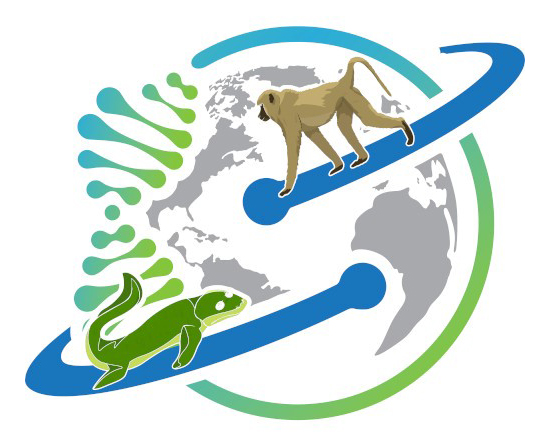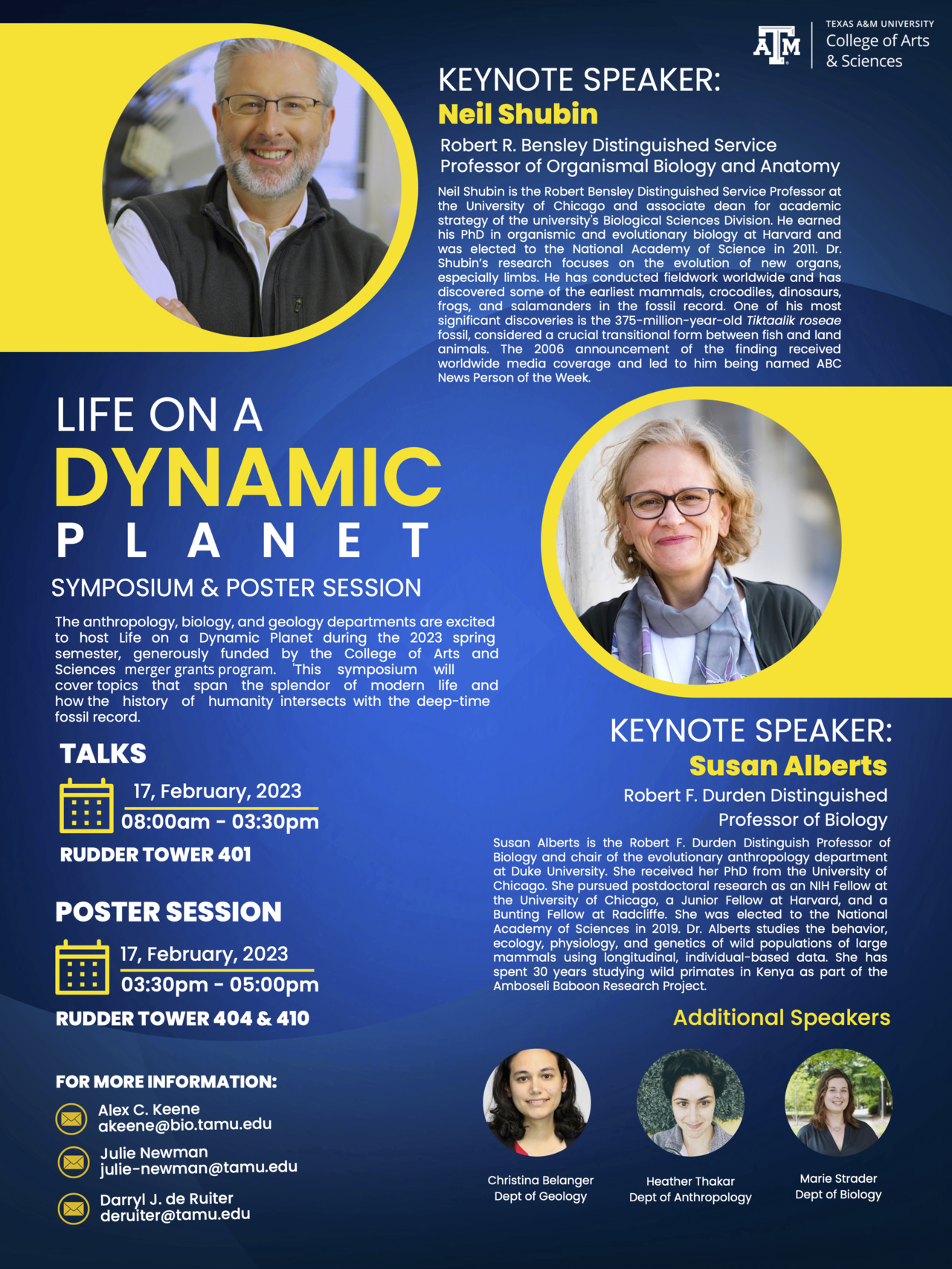
Three departments in the College of Arts and Sciences at Texas A&M University are teaming up to host the Life on a Dynamic Planet Symposium, set for Friday, Feb. 17, from 8 a.m. to 3:30 p.m. in Rudder Tower. A poster session will follow, concluding at 5 p.m.
Developed by the heads of the Departments of Anthropology, Biology, and Geology and Geophysics and funded by the college’s merger grants program, the symposium aims to show the interconnection among the three areas of study.
Biology department head Alex C. Keene collaborated with Geology and Geophysics department head Julie Newman and Anthropology department head Darryl de Ruiter to bring this vision to life.
“The three of us knew each other and had an interest in each other’s work,” Keene said. “There are some overlapping areas of expertise in our fields, and we thought the merger grant was a great opportunity to get people together.”

According to Keene, the symposium will cover the human experience, from deep-time fossil records to modern life, and feature two keynote speakers: National Academy of Sciences members Neil Shubin, the Robert R. Bensley Distinguished Service Professor of Organismal Biology and Anatomy at the University of Chicago, and Susan Alberts, the Robert F. Durden Distinguished Professor of Biology at Duke University.
“We had many names to choose from, but in the end, we went with who excited us the most,” Keene said. “We have exceptional speakers who really unite our interests.”
The keynote addresses, which are free and open to the public, will take place from 1:30 to 3:30 p.m. in Rudder Auditorium.
Along with Shubin and Alberts, the symposium also will feature morning talks from three junior faculty members: Geology and Geophysics’s Christina Belanger; Anthropology’s Heather Thakar; and Biology’s Marie Strader.
“I’m excited to meet people from all over campus,” Keene said. “In addition to the two national speakers, we have three junior faculty members who are all exceptional.”
Keene says he hopes people walk away from the symposium with a renewed sense of wonder.
“The goal is that people leave with the feeling that their discipline is broad and touches areas that are studied in other units on campus,” he said. “Also, it’s supposed to be fun — getting together with people around campus and uniting around science.”
